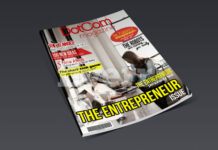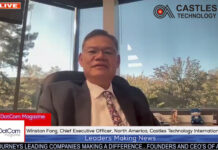Travel is a powerful investment in yourself, offering chances to pick up new skills, strengthen your independence, and gain fresh perspectives that can genuinely fuel your career growth. Whether you’re wandering through foreign cities on your own, learning to work with others on cruise ships, or figuring out life in a place where you don’t speak the language, every journey has a way of expanding your worldview and building up your confidence. You’ll find yourself stepping outside your comfort zone, tackling problems you never expected, and meeting people you’d never cross paths with at home.
Actually, there’s research out there showing that getting out into new environments can sharpen your professional skills and mental toughness. Facing unpredictable situations or adjusting to a new city? That’s the kind of thing employers notice. Travel also does wonders for your personal growth and emotional intelligence—both key for leading teams and moving up in your career, as you’ll see in articles on travel and personal growth and reasons why travel is an investment in yourself.
Whether you’re drawn to the structure of group tours, the unpredictability of solo adventures, or the ever-changing scenery of cruise travel, each place you visit leaves a mark on your professional journey and keeps you growing long after you’re home.
The Transformative Power of Travel for Professional Growth
Travel offers more than just a change of scenery—it’s a real chance to pick up new skills and perspectives in situations that push you to grow. You’re constantly dealing with the unexpected, which, honestly, is the best way to learn.
Gaining Adaptability Through Diverse Travel Experiences
Throwing yourself into unfamiliar places—maybe a tiny mountain village or a sprawling airport in a country where you can’t read the signs—forces you to get adaptable, fast. Whether it’s a cruise across several countries or a short work stint abroad, every new setting asks you to problem-solve and adjust, sometimes on the fly.
Travel also gives you a front-row seat to how different businesses and communities tick. Watching a cruise crew expertly juggle customer service on a busy cruise line is a crash course in thriving in fast-paced, multicultural workplaces.
Schedules change, plans get derailed, and things rarely go as expected—honestly, that’s where you really learn to think on your feet. Employers love this kind of resilience; people who can roll with the punches tend to lead better and solve problems more creatively.
Boosting Independence and Self-Esteem via Solo Adventures
There’s nothing quite like solo travel for testing your independence and building confidence. Navigating a new city by yourself, figuring out how to get from the airport to your hotel, or sorting out a missed train without backup—it all builds a kind of self-reliance you just can’t get from a daily routine.
When you’re the only one making decisions and dealing with hiccups, you start to trust your own judgment more. Every solo trip you pull off adds to your sense of achievement and, let’s be honest, makes you feel a little unstoppable.
Planning and pulling off a solo adventure means you’re taking initiative, learning about local customs, and dealing with setbacks all on your own. As some travel writers point out, those wins translate directly to the workplace—especially in jobs where you need to lead or work independently.
Enhancing Communication and Networking Skills Abroad
Meeting people from all over the world forces you to rethink how you communicate. On group tours, during cruise excursions, or just hanging out at a hostel, you have to get your point across, listen up, and adapt to all kinds of conversation styles.
Language barriers? They’ll teach you to watch for body language, simplify what you’re saying, and be patient when things get lost in translation.
All this isn’t just good for your empathy—it seriously sharpens your networking chops. Making friends with fellow travelers, chatting with international colleagues, or connecting with local business owners shows that you can grow your network pretty much anywhere.
Developing Cultural Intelligence in Global Destinations
Working or traveling in other countries really opens your eyes to different cultural norms and expectations. You start to see where your own assumptions might trip you up.
Maybe you’re joining a workshop abroad, celebrating a local festival, or having dinner with a host family—these moments build your cross-cultural sensitivity. You get better at picking up on what matters to people, and you learn how to operate in settings that are nothing like home.
Cultural intelligence—CQ, as some call it—is a huge asset if you’re working with global teams or clients. Being culturally aware helps you build trust, work smoothly with diverse groups, and sidestep misunderstandings that can slow things down.
Maximizing Career Advancement Through Varied Travel Types
Travel isn’t just about ticking places off a list; it’s a hands-on way to build skills you’ll actually use at work. The types of trips you take, the places you go, and the challenges you face all come together to develop leadership, adaptability, and that all-important self-reliance.
Learning Leadership on Cruises and Group Expeditions
Hop on a cruise or join a group expedition, and you’re immediately thrown into situations where you have to work with new people and handle whatever comes your way. Cruises tend to pack in team activities, cultural outings, and workshops, all of which push you to listen, negotiate, and sometimes even step up as a leader.
You’ll see that cruise lines often highlight team-building and social skills. Navigating group dynamics on board or during shore excursions gives you real-world practice in conflict resolution and communication—stuff you can use back at the office. If you’re after leadership growth in a lively, supportive setting, check out the range of cruise lines offering structured group activities and daily chances to try something new.
Building Problem-Solving Skills with Off-the-Beaten-Path Destinations
Heading to places most travelers skip takes a flexible attitude. You’ll have to make plans on the go, deal with language gaps, and work out how things operate in totally unfamiliar systems. These trips force you to be resourceful—like when you’re rerouting after a missed bus or asking a stranger for help in a language you barely speak.
Going solo or venturing into rural or remote spots really puts your judgment to the test. Planning your route, figuring out transport, and connecting with locals—all of it stretches your problem-solving skills. Every little challenge you overcome stacks up, giving you a quiet kind of confidence you just can’t get sitting at a desk.
Some of the skills you’ll build with this kind of travel:
- Quick decision-making
- Resourcefulness and adaptability
- Cross-cultural communication
Integrating Skills from Travel for Workplace Success
Pulling from your travel experiences can really make your résumé pop. You tend to come back with a sharper sense of how to handle all sorts of personalities, tackle surprises without losing your cool, and—let’s be honest—figure out when to draw the line for yourself.
Employers notice when someone’s actually lived through a range of situations, not just read about them. Thinking back on your travels might even help you see how much you’ve changed, or at least give you a little extra confidence when you’re stepping into something new. Weaving these stories into your interviews or applications? That’s one way to show you’ve picked up self-management, leadership, and a knack for adapting—qualities that pop up a lot in career development research, by the way.

















